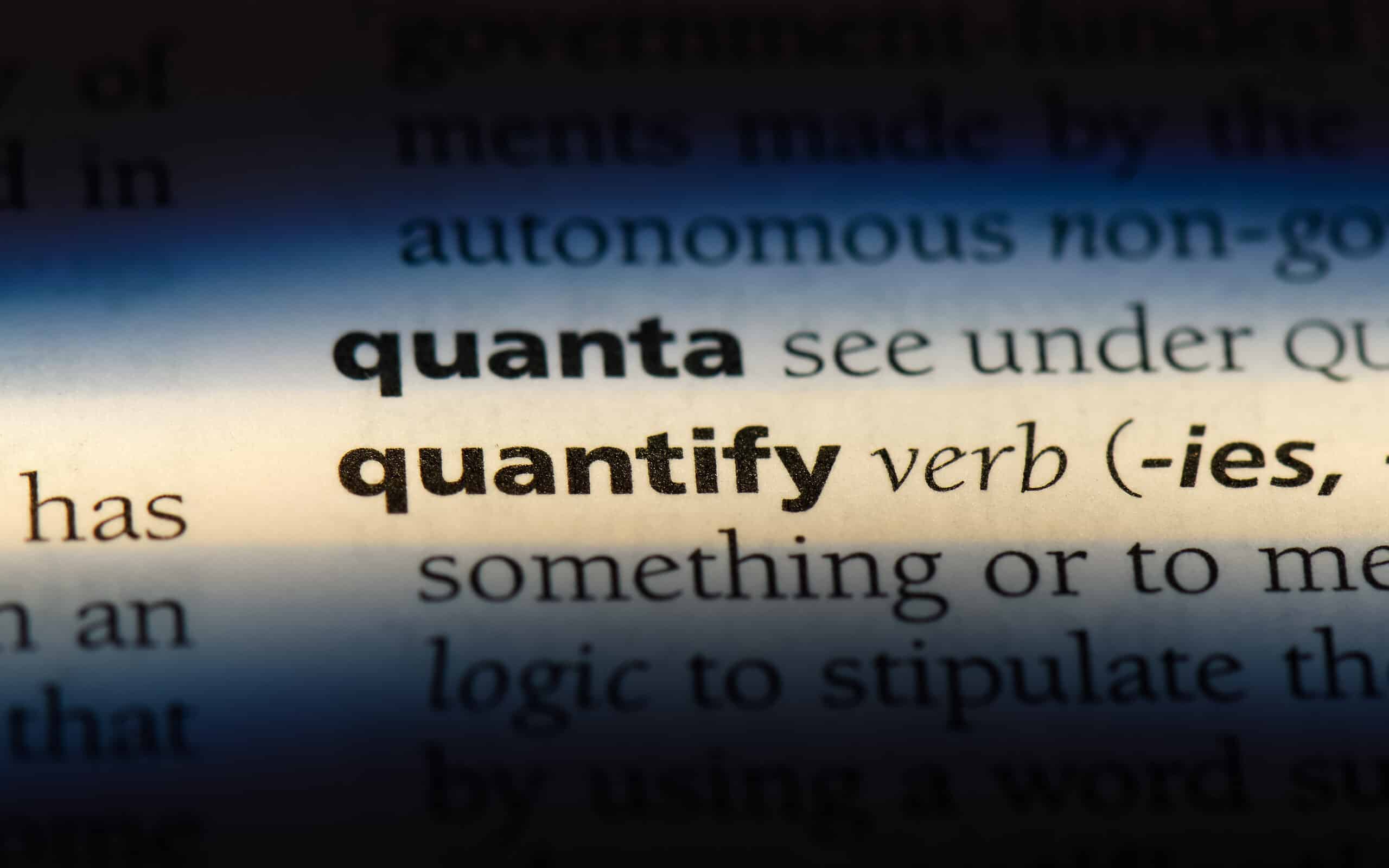
We need quantifiers to give a fuller and clearer picture of many statements. Here is what they are and how they work.
Overview: What are quantifiers?
Quantifiers can be defined as the words, expressions, or phrases that indicate the number of elements that a statement pertains to. Quantifiers are the means of tracking how measurables are performing. There are a variety of quantifiers. Result quantifiers are associated with result measurables, while process quantifiers are associated with process measurables. In logic problems, there are two quantifiers that are the most common. The symbol ∀ is a universal quantifier and signifies that a variable is true “for all”. The symbol ∃ is an existential quantifier and can be seen as “some of the time”.
3 benefits of quantifiers
There are a few key benefits of quantifiers:
1. Adds helpful information
We include quantifiers when we want to give an idea of the number of something.
2. Necessary for a quantified formula
In logic, you need a quantifier in order to present a quantified formula. A quantified formula must have both a bound variable as well as a subformula that specifies a property of the referent related to that variable.
3. Compactness
A benefit of quantifiers is that they can help large concepts feel more compact.
Why are quantifiers important to understand?
There are several reasons why quantifiers are important to understand:
It helps us understand logic statements
A logic statement can be true or false, but it cannot be both. Quantifiers tell us the elements that satisfy the logic statement.
Versatility
By understanding quantifiers, you are able to express a large variety of ideas in many contexts, including engineering and manufacturing.
First Order Logic
Understanding quantifiers is an important part of being able to express ideas in First Order Logic, a useful knowledge representation language.
An industry example of quantifiers
In a machine shop, the compressors are given weekly tests. In a recent week, it was found that all of the compressors on the floor needed adjustments of some kind. “All of” is an example of a quantifier.
3 best practices when thinking about quantifiers
Here are some practices to keep in mind when it comes to quantifiers:
1. Remember the difference between ∀ and ∃.
The former means “for all” and is making a statement that an expression is satisfied by all entities. The latter means “there exists” and is making a statement that at least one entity will satisfy the expression.
2. Domain of discourse
A domain of discourse is a collection of entities that the logic being used is making statements about. For example, if a statement is made using ∀ in relation to rivets, the quantifier does not likely extend to ice cream cones.
3. In mathematical logic, you only need two quantifiers
While there are all sorts of different types of quantifiers in English (some of, all of, none of, a few, many, etc.), in mathematical logic problems, you only need ∀ and ∃.
Frequently Asked Questions (FAQ) about quantifiers
How many quantifiers are there in logic?
There are two kinds of quantifiers in logic. There are universal quantifiers and existential quantifiers. Universal quantifiers are represented by ∀ and existential quantifiers are symbolized by ∃.
Who developed quantifiers?
Modern quantifiers were first introduced in 1879 by Frege. Then, in 1933, Tarski developed a semantic approach to quantifiers.
What is a quantifier in logic?
In logic, it is a language element that helps in the generation of a quantitative statement or quantitative variable.
The need for quantifiers
Quantifiers help us in everyday language, engineering, logic problems, and many other areas. Without quantifiers, it would be essentially impossible to give a full picture of what is meant by a statement.